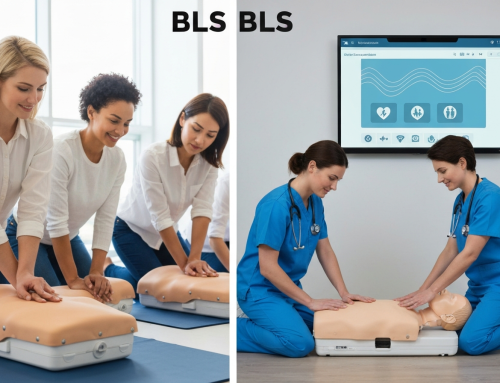Preliminary research suggests that artificial intelligence (AI) analyzing electronic health records could predict sudden cardiac death. Researchers in France conducted a study analyzing electronic health records of 25,000 individuals who had experienced sudden cardiac death and 70,000 individuals hospitalized for cardiac arrest but did not die, in Paris and Seattle. Using AI, personalized health equations were created to determine the risk of sudden cardiac death for each person. The study proposes that this approach, considering a range of medical information beyond traditional cardiovascular risk factors, could lead to the development of personalized risk profiles. The findings, to be presented at the American Heart Association’s Resuscitation Science Symposium 2023, suggest a potential shift toward preventive strategies in addressing individual risks and ultimately preventing sudden cardiac deaths.
Embargoed until 4 a.m. CT/5 a.m. ET, Monday, Nov. 6, 2023
DALLAS, Nov. 6, 2023 — The possibility of predicting sudden cardiac death and intervening to prevent future occurrences using artificial intelligence (AI) is explored in preliminary research set to be presented at the American Heart Association’s Resuscitation Science Symposium 2023. The meeting, scheduled for Nov. 11-12 in Philadelphia, serves as a global platform for the latest advancements in treating cardiopulmonary arrest and life-threatening traumatic injury.
“Sudden cardiac death, a significant public health concern, accounts for 10% to 20% of overall deaths. Traditional approaches struggle to identify high-risk individuals, especially at an individual level,” said lead author Dr. Xavier Jouven, a professor of cardiology and epidemiology at the Paris Cardiovascular Research Center, Inserm U970-University of Paris. “Our novel approach goes beyond conventional cardiovascular risk factors, encompassing all available medical information in electronic health records.”
The research team employed AI to analyze medical information from registries and databases in Paris and Seattle for 25,000 individuals who died from sudden cardiac arrest and 70,000 from the general population, with data matched by age, sex, and residential area. The dataset, comprising over 1 million hospital diagnoses and 10 million medication prescriptions, covered medical records up to a decade before each death. AI analysis generated nearly 25,000 equations with personalized health factors, identifying those at very high risk of sudden cardiac death. Furthermore, customized risk profiles were developed for each individual.
Personalized risk equations considered medical details, such as high blood pressure treatment and heart disease history, as well as mental and behavioral disorders, including alcohol abuse. The analysis identified factors likely to decrease or increase the risk of sudden cardiac death within a specified percentage and time frame, such as an 89% risk within three months.
The AI analysis successfully identified individuals with over 90% risk of sudden death, constituting more than a quarter of all sudden cardiac death cases.
“Having worked in sudden cardiac death prediction for nearly 30 years, we did not anticipate achieving such a high level of accuracy. We also found that personalized risk factors vary widely among participants and often originate from different medical fields—a complex picture for a specialist in one field to grasp,” said Jouven, founder of the Paris Sudden Death Expertise Center. “While effective treatments exist for doctors, such as risk factor correction, specific medications, and implantable defibrillators, AI is crucial to detecting a subject’s trajectory of medical information over the years associated with an increased risk of sudden cardiac death. With a personalized list of risk factors, patients can collaborate with their clinicians to reduce these factors and ultimately lower the potential for sudden cardiac death.”
The study acknowledges limitations, including the potential applicability of prediction models beyond this research and variations in electronic health record data among countries, necessitating adaptation of prediction models.
Co-authors, disclosures, and funding sources are detailed in the abstract.
Statements and conclusions presented at the American Heart Association’s scientific meetings are solely those of the study authors and do not necessarily reflect the Association’s policy or position. The Association makes no representation or guarantee regarding their accuracy or reliability. Abstracts presented at the Association’s scientific meetings are not peer-reviewed; they undergo independent review and are considered based on their potential to contribute to the diversity of scientific issues discussed at the meeting. The findings remain preliminary until published as a full manuscript in a peer-reviewed scientific journal.
The Association’s funding primarily comes from individuals, with donations also received from foundations and corporations, including pharmaceutical and device manufacturers. The Association maintains strict policies to prevent these relationships from influencing scientific content. Financial information, including revenues from pharmaceutical and biotech companies, device manufacturers, and health insurance providers, is available on the Association’s website.






Leave A Comment